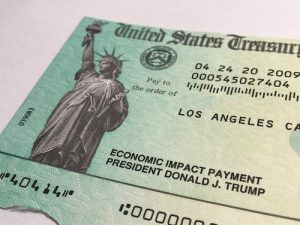
A decision by the Internal Revenue Service (IRS) requiring Americans who have not yet received their second Economic Impact Payment (EIP) to wait until they file their 2020 taxes is not going to cut it, U.S. Rep. Fred Upton (R-MI) and a bipartisan group of 41 other lawmakers said earlier this week.
“People need financial relief now, and we must act swiftly to get these checks into the hands of people who need them most,” Rep. Upton and his colleagues wrote in a Jan. 11 letter sent to IRS Commissioner Charles Rettig.
On Dec. 21, 2020, Rep. Upton voted for and Congress approved the latest COVID-19 financial relief package, which included $600 direct payments to nearly all Americans.
According to the lawmakers’ letter, several of their constituents have raised concerns about the IRS decision, which they said adds bureaucratic hurdles that make access to the EIPs difficult, leaving them with no option to access financial relief to address their immediate financial obligations.
“Our constituents are entitled to receive these direct payments immediately. Instead, they have been asked to delay receiving these payments by at least several weeks until they receive proper tax documents, file their taxes, and receive payment,” wrote Rep. Upton and his colleagues.
In addition, the IRS is advising Americans to file their taxes electronically to receive their EIPs when many do not have the resources to do so, according to their letter.
“Further, the IRS is still processing 2019 tax returns, and we are concerned that this backlog could further delay taxpayers from receiving their second EIP if they wait to receive their direct payment through their 2020 tax return,” the members wrote.
Rep. Upton and his colleagues urged the IRS to provide Americans options to submit their direct payment information directly to the IRS, whether by submitting their bank information through a secure portal, or by submitting their mailing address so that they may receive a check in the mail.
They also requested that the IRS report recommendations to Congress to improve the accessibility of EIPs for future rounds of these direct payments by Jan. 29.



